Product Description
New! Dementia Beyond Drugs Reading Guide
Download and use this guide while reading to assist you in engaging more deeply with the text.
Reducing the use of psychotropic drugs in the symptomatic treatment of dementia is key to successfully implementing compassionate, person-centered practices in your organization—and this book shows clearly why and how it can be done. The revised second edition of this award-winning resource introduces new research, language, and examples to reinforce the core message that antipsychotic medications are not the solution to ease the distress experienced by individuals living with dementia. Outlined here is the information and inspiration you need to provide alternative solutions for individualized support and care.
IN THIS BOOK YOU’LL FIND:
- enlightened models to reduce the use of harmful medications by understanding and addressing underlying causes of distress
- a pathway to accomplish drug-reduction goals established by the U.S. Centers for Medicare and Medicaid Services (CMS)
- discussions of new drug studies and government reports on the dangers and ineffectiveness of antipsychotic medications in the treatment of people with dementia
- recognized best practices in dementia care and their transformational results
- case studies, stories, and other educational tools illustrating positive outcomes for people living with dementia
- ways to respond to anxiety and distress in people with dementia
An essential read for all professionals in long-term care, including administrators, medical directors, nursing staff, psychologists and counselors, social workers, and policy makers, the ideas presented here call for a revolution in dementia care—one that always puts the person first.
Also by G. Allen Power

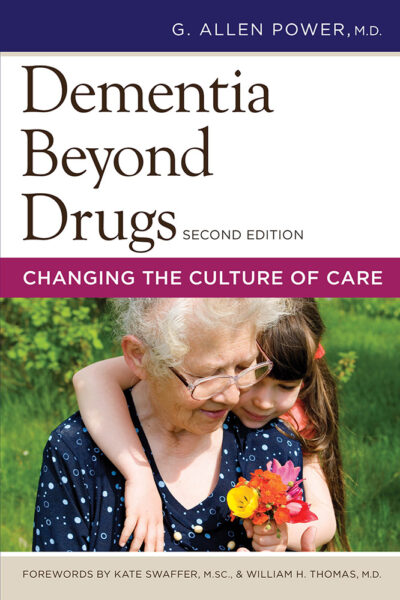

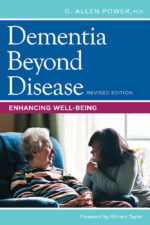
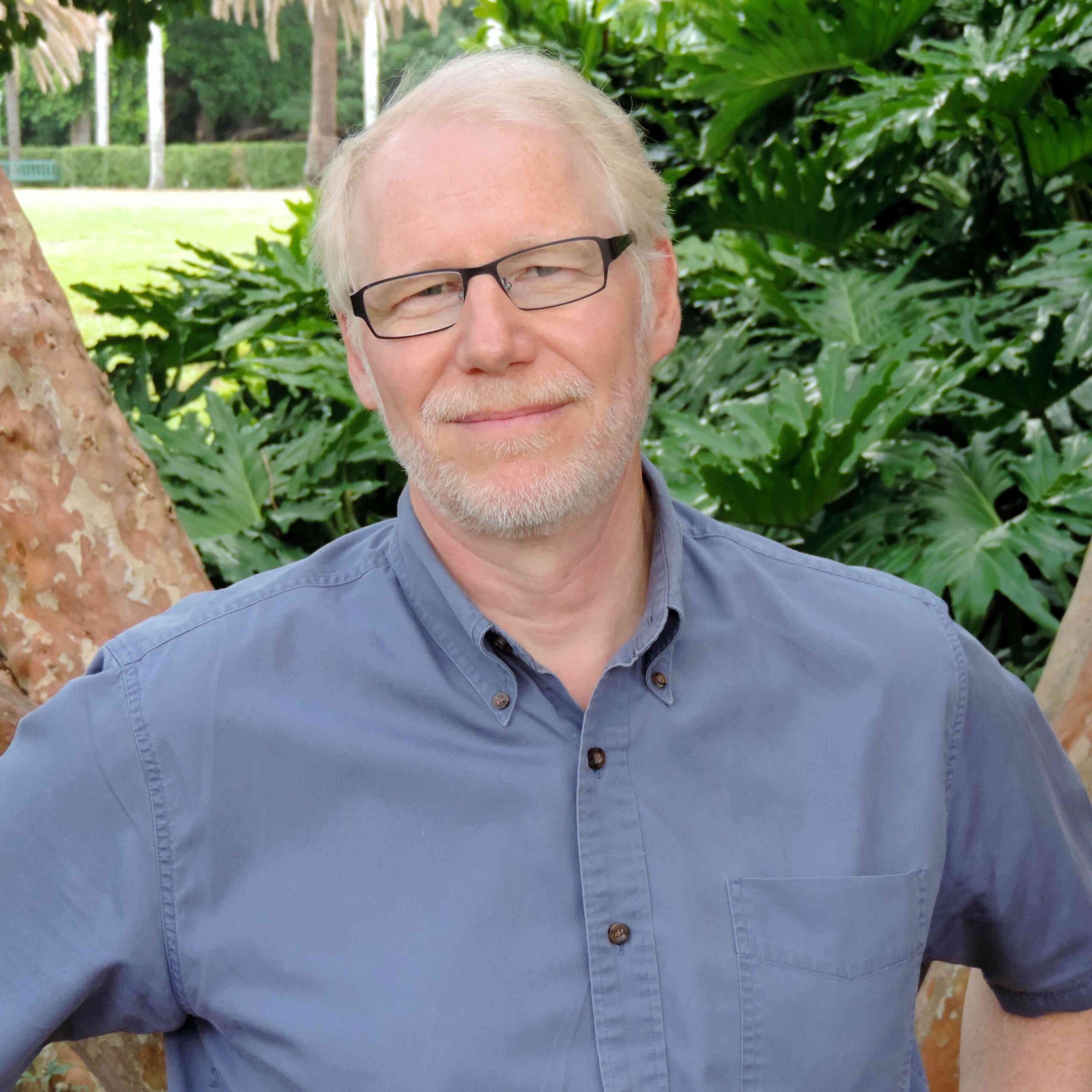 G. Allen Power, M.D., is a board-certified internist and geriatrician and Clinical Associate Professor of Medicine at the University of Rochester, New York. He is a Fellow of the American College of Physicians—American Society of Internal Medicine, and an international educator on transformational models of care for older adults, particularly those living with changing cognitive abilities.
Dr. Power’s first edition of Dementia Beyond Drugs: Changing the Culture of Care was named a 2010 Book of the Year (in Psychiatric/Mental Health Nursing) by the American Journal of Nursing. He served on the technical advisory panel for the U.S. Center for Medicare and Medicaid Services for their national antipsychotic reduction initiative. Dr. Power was interviewed for the film Alive Inside, winner of the Audience Award for Best U.S. Documentary at the 2014 Sundance Film Festival. He also was a member of the Scientific Program Committee and a keynote speaker for Alzheimer’s Disease International Conference 2015 in Perth, Western Australia.
Dr. Power was named one of “
G. Allen Power, M.D., is a board-certified internist and geriatrician and Clinical Associate Professor of Medicine at the University of Rochester, New York. He is a Fellow of the American College of Physicians—American Society of Internal Medicine, and an international educator on transformational models of care for older adults, particularly those living with changing cognitive abilities.
Dr. Power’s first edition of Dementia Beyond Drugs: Changing the Culture of Care was named a 2010 Book of the Year (in Psychiatric/Mental Health Nursing) by the American Journal of Nursing. He served on the technical advisory panel for the U.S. Center for Medicare and Medicaid Services for their national antipsychotic reduction initiative. Dr. Power was interviewed for the film Alive Inside, winner of the Audience Award for Best U.S. Documentary at the 2014 Sundance Film Festival. He also was a member of the Scientific Program Committee and a keynote speaker for Alzheimer’s Disease International Conference 2015 in Perth, Western Australia.
Dr. Power was named one of “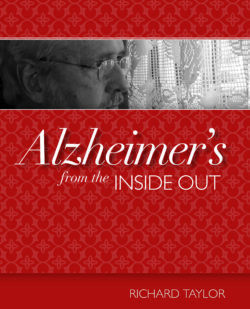
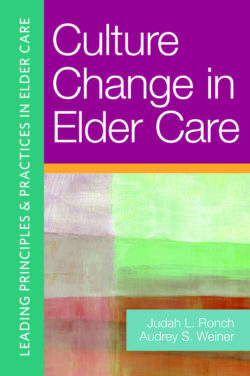
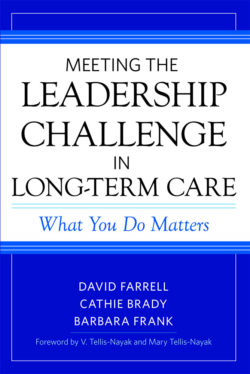
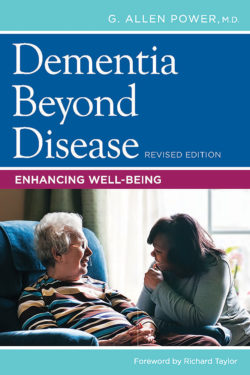
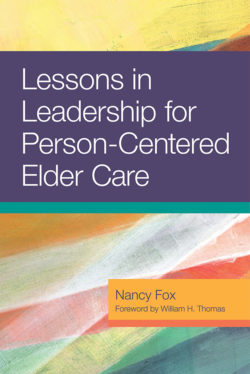
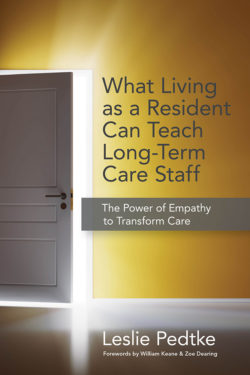
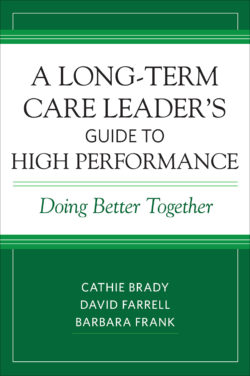
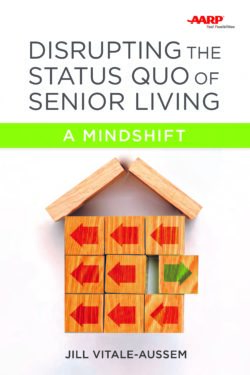
Administrator –
“This book is a must for all who endeavour to better care for our seniors! If we are new to person- and relationship-centred care, it illuminates, instructs, and edifies. If we are already on this journey of enlightened care, it makes palpable our shared understanding and experiences, galvanising us and inspiring us to new heights!”
—Dr. Philip Yap Lin Kiat
Senior Consultant, Dept of Geriatric Medicine Clinical Director, Geriatric Centre Khoo Teck Puat Hospital
Adjunct Association Professor, Yong Loo Lin School of Medicine, National University of Singapore
Administrator –
“As this second edition of a classic demonstrates, Dr. Al Power is a pioneer still on a journey to transform the lives of people with dementia. His work and passion contribute to the bigger picture of challenging medicalization and institutionalization, which are built on limited views of the value of diagnostic labels, the nature of aging, and the power of science. His book offers new hope for the future of aging and care.”
—Peter Whitehouse, M.D.
Professor of Neurology, Case Western Reserve University
Strategic Advisor in Innovation, Baycrest Health Center
Professor of Medicine and Institute of Life Course and Aging, University of Toronto
President, Intergenerational Schools International
Administrator –
“This book is a tour de force and a must read for anyone who cares about individuals who are living with dementia. Dr. Power, through his wonderful insights, pragmatic sensibility, and personal experiences, offers valuable information to change the culture of dementia care that sorely needs changing. The first edition of the book was excellent, yet the second edition is even more enriching. Bravo!”
—Karen Love, Executive Director, Dementia Action Alliance
Administrator –
“This book is a must read for individuals and organisations working with people living with dementia. It certainly sparked a revolution in me personally—which then spread quickly throughout my entire company.”
—Daniella Greenwood, Strategy and Innovation Manager, Arcare Residential Aged Care, Australia
Administrator –
“This transformative, comprehensive, and enriching book will change your perspective towards respecting the humanity of people with dementia. From an experiential model of dementia, Dr. Power sees our loneliness and boredom, and writes of how we can be helped towards wellbeing. Most importantly, he challenges the use of medication, rather than individualised care.”
—Christine M. Bryden, author and dementia advocate